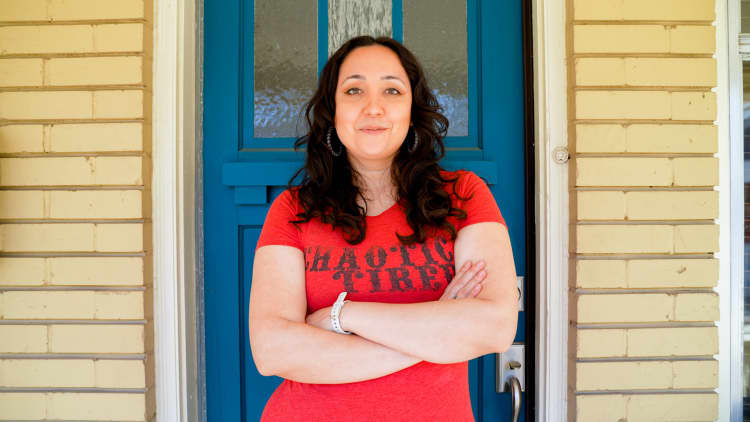If you were hoping interest rates might come down this spring, you're likely going to have to wait a little bit longer.
Following higher-than-expected reports on inflation, the U.S. Federal Reserve decided to keep its benchmark interest rate at its current levels until its next meeting in late June, despite hopes that the central bank would start cutting rates in 2024.
That's not good news for people borrowing money, but it's a great time to have savings accounts, says Ted Rossman, chief credit card analyst at Bankrate.
"The biggest benefit is for savers," Rossman says. "You can still get over 5% on a totally liquid totally federally insured savings account. The top one-year certificates of deposit are also over 5%."
After more than a decade of near-zero interest rates, savers are now in an environment where they're being rewarded for keeping deposits in the bank. And with interest rates staying at their decades-long high for longer, savers have an extended window to take advantage of everything banks are offering.
Shop around for savings accounts with the highest rates
The average savings account in the U.S. is paying just shy of 0.5% interest on deposits, according to data from the Federal Deposit Insurance Corporation. That's almost eight times what it was three years ago, but that's nothing compared with what some high-yield accounts are currently offering, Rossman says. And not enough people are taking advantage of those offers, he says.
"We did a study recently and found that very few people are earning even 4% on their savings," Rossman says. "You can get over 5.5% on the top-yielding savings account, but two-thirds of savers are earning less than 4%"
In order to get those great rates, consumers should shop around and consider opening new accounts, even if that means switching banks.
"That's the inertia factor: You just stick with the same bank you've always used," Rossman says. "But it's well worth it to go ahead and open one of these accounts and get an extra several percentage points on your emergency savings or other short-term money."
That same logic works for certificates of deposit. Many banks are offering promotional CDs with high yields if you can tie some money up for a few months. Now is a great time to shop around for the most favorable terms and lock in those interest rates while they're here, Rossman says.
Use balance transfer cards to help pay down your credit card debt
High interest rates reward savers, but they also mean that borrowing money will remain expensive for the foreseeable future. Credit card rates, in particular, continue to be at historic highs.
The average rate for credit cards in the U.S. has been above 20% since March 2023, but many cards carry rates much higher than that, Rossman says. "Some of these cards are over 30%. Especially store credit cards — dozens of them are over 30%."
Those high rates are brutal for borrowers carrying balances, leaving them "stuck in debt for many years because they have a high interest rate."
For credit card users with high credit card bills, balance transfer cards continue to be great options for paying down those debts. Balance transfer cards are exactly what they sound like: They let you take the balance from one card and transfer it to another, often for a one-time fee, then give you a window of time of zero interest to pay down that balance.
Credit card issuers began offering balance transfer cards with very generous terms during the pandemic, and somewhat surprisingly, they haven't stopped offering them, Rossman says.
"The fact that 0% balance transfer cards remain widely available, is, on its face, surprising," Rossman says.
Many cards are still offering long windows of zero interest and low transfer fees. And as long as these terms are still around, consumers would be smart to take full advantage.
"A lot of banks are hoping that you get the card, you get the bonus in the time period, but then you don't pay it off in time. And then your rate goes way up," Rossman says. "But I think if you use it to your advantage, you can really come out ahead."
Want to make extra money outside of your day job? Sign up for CNBC's new online course How to Earn Passive Income Online to learn about common passive income streams, tips to get started and real-life success stories.
Plus, sign up for CNBC Make It's newsletter to get tips and tricks for success at work, with money and in life.



